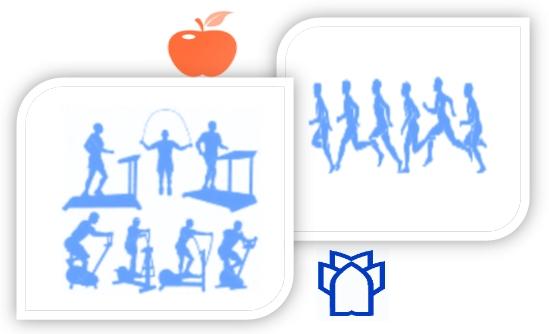Physical activity:
Physical activity is defined as any bodily movement produced by skeletal muscles that requires energy expenditure. Physical inactivity has been identified as the fourth leading risk factor for global.
Regular moderate intensity physical activity – such as walking, cycling, or participating in sports – has significant benefits for health. For instance, it can reduce the risk of cardiovascular diseases, diabetes, colon and breast cancer, and depression. Moreover adequate levels of physical activity will decrease the risk of a hip or vertebral fracture and help control weight.

Physical exercise is any bodily activity that enhances or maintains physical fitness and overall health and wellness. It is performed for various reasons including strengthening muscles and the cardiovascular system, honing athletic skills, weight loss or maintenance, as well as for the purpose of enjoyment. Frequent and regular physical exercise boosts the immune system, and helps prevent the "diseases .

The Benefits of Physical Activity
Regular physical activity is one of the most important things you can do for your health. It can help:
- Increase your chances of living longer
- Control your weight
- Reduce your risk of cardiovascular disease
- Reduce your risk for type 2 diabetes and metabolic syndrome
- Strengthen your bones and muscles
- Reduce your risk of some cancers
- Improve your ability to do daily activities and prevent falls, if you're an older adult
- Improve your mental health and mood
- Childhood obesity is a growing global concern and physical exercise may help decrease some of the effects of childhood and adult obesity.